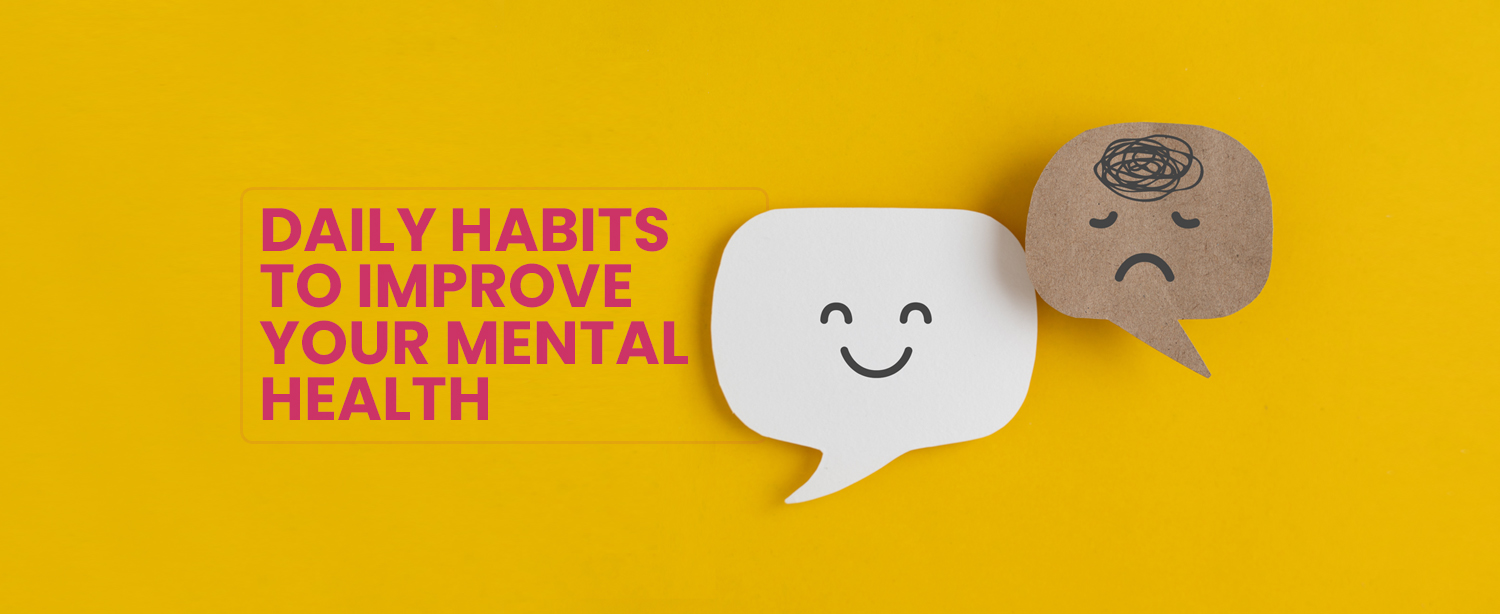Medical research suggests that nearly 15 percent of adults in India need active intervention for one or more mental health conditions and one in 20 Indians suffers from depression. However, people can also suffer from a poor mental health without having any mental health condition. Mental health comprises of your emotional, psychological, and social well-being. The status of your mental health determines how you handle stress, your relationships and your personal and professional life. Maintaining good mental health is equally important as your physical health.
Simple, daily habits can play a crucial role in supporting mental well-being and resilience against life’s stressors. While some factors affecting mental health are beyond your control, adopting a consistent routine of positive habits can significantly enhance your emotional and psychological state. Here are ten practical daily habits that mental health professionals recommend for boosting your mental health:
Table of Contents
Practice Mindfulness
Being mindful entails living in the present moment and enjoying every moment. This practice can improve your awareness of your thoughts, feelings, and surroundings, making it easier to manage stress and anxiety. Incorporate mindfulness into your daily routine by focusing on your breathing or paying attention to your environment during simple tasks, like brushing your teeth or walking.
Get Enough Sleep
Sound sleep for 7 to 8 hours daily is essential for both mental and physical health. Lack of sleep can make it difficult to manage stress and emotions, which can exacerbate existing mental health issues. Creating a regular bedtime routine, avoiding screens before bed, and limiting caffeine in the evening can help you improve the quality of your sleep.
Exercise Regularly
Exercise releases endorphins, which are natural chemicals that promote a positive mood and reduce stress. Even small amounts of movement, such as a daily 20-minute walk, can make a significant difference in your mental well-being.
Read more on: How Exercise Boosts Your Mental Health
Stay Connected
Connecting with loved ones and acquaintances is therapeutic. Maintaining strong connections with friends, family, or even colleagues is essential for mental health. Social interactions provide emotional support and reduce feelings of loneliness and isolation, which are risk factors for mental health disorders like depression and anxiety.
Eat a Balanced Diet
The foods you eat can have a direct impact on your mood and overall mental health. Have a balanced diet that includes fruits, vegetables, whole grains, and lean proteins helps regulate your energy levels and supports brain function. Avoid processed foods and foods high in sugar that can contribute to mood swings and feelings of fatigue.
Practice Positive Self-Talk
Your internal dialogue significantly influences how you perceive challenges and setbacks. Positive self-affirmations are encouraging and help avoid negative thoughts. For example, instead of thinking “I can’t do this,” try telling yourself, “I’m capable, and I will manage this task confidently.”
Spend Time in Nature
Spending time in nature can reduce stress, improve your mood, and boost overall well-being. Exposure to natural light, fresh air, and green spaces has been linked to improved mental health, including reduced symptoms of anxiety and depression.
Make Time for Relaxation
Relaxation is crucial for preventing burnout and managing stress. Incorporating relaxation techniques such as deep breathing, meditation, or listening to calming music can help you unwind and re-center yourself, even on the busiest days.
Learn a new Skill
Engaging your mind through learning keeps it sharp and can also increase your sense of accomplishment and self-esteem. Whether it’s picking up a new hobby, learning a language, or reading a book, continuous learning can positively affect your mental health.
Limit Alcohol and Substance Use
While it might seem like a quick fix, relying on alcohol or other substances can negatively affect your mental health in the long run. Excessive use can increase feelings of anxiety and depression and hinder your ability to cope with stress effectively.
Mental Health Care at Kokilaben Dhirubhai Ambani Hospital
If you or a loved one is concerned about your mental health or are suffering from any mental health conditions it is time to seek help without hesitation. Connect with the team of psychologists and counselors at our Department of Psychiatry. Please find below link for more details: https://www.kokilabenhospital.com/departments/clinicaldepartments/psychiatry.html


